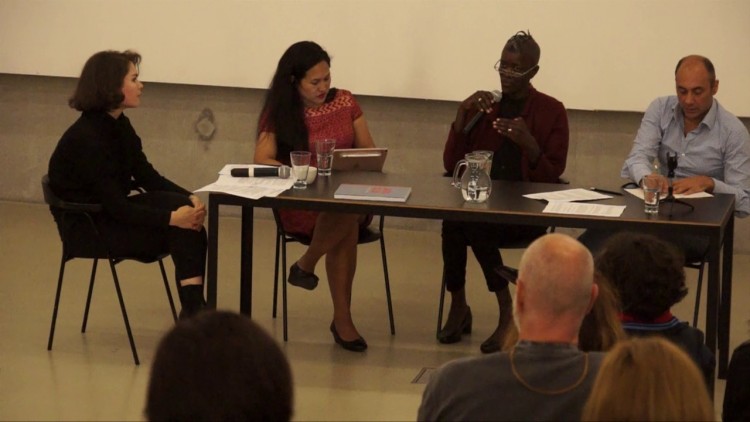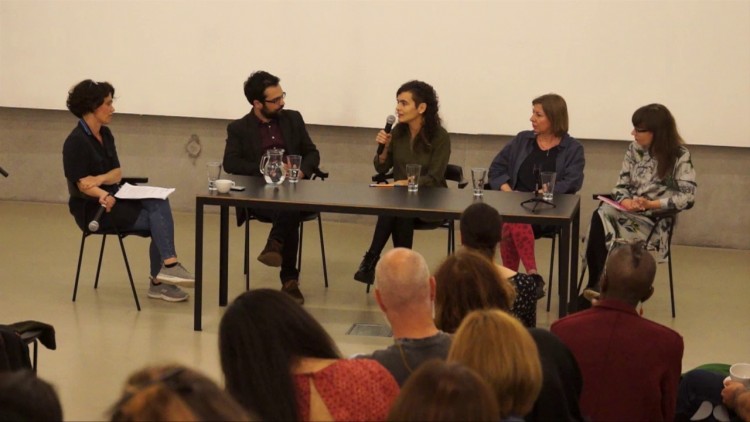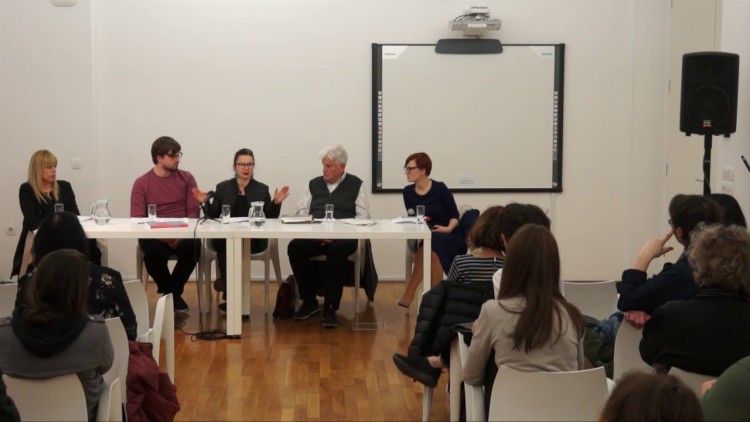The lecture Towards an Aesthetics of Southern Uprisings by a curator and film theorist Olivier Hadouchi accompanies the Southern Constellations: The Poetics of the Non-Aligned exhibition.
Reporters from former Yugoslavia like Zdravko Pečar and Stevan Labudović documented the Algerian War of Independence; their country was part of the Non-Aligned Movement, promoting anti-colonialism and the right to national independence, and they had links with many nations (and sometimes liberation movements) in the South (Asia, Africa and Latin America). In addition to being reporters, they had first-hand experience of the partisan struggle, as did the British historian Basil Davidson, who supported the struggles of Angola and Guinea Bissau for independence and had been stationed among the Partisans in Yugoslavia in World War II.
The Tricontinental Movement, drawing inspiration from the ideas of Frantz Fanon (The Wretched of the Earth, 1961), Amílcar Cabral, Ho Chi Minh and Ernesto Che Guevara (with his famous Message to the Tricontinental “create two, three… many Vietnams” published in 1967), was (or is now considered) a revolutionary constellation in the South in the period of decolonization in Asia and Africa, and of anti-imperialist struggles in Latin America. While it is generally seen as more radical than the Non-Aligned Movement, both movements used images of partisans (guerrilleros, guerrilla fighters in their element and in a natural environment) and shared other elements (people in arms) in their representations of the struggles in the South. The Tricontinental Movement is now seen by artists and filmmakers as a revolution in both politics and aesthetics.
Olivier Hadouchi was born, lives and works in Paris. He holds a PhD in cinema studies and is a film curator and researcher (associated with IRCAV - Paris 3). Hadouchi published a booklet about solidarity with the Algerian war of independence (edited by Zoran Erić & MoCab) and an essay about Kinji Fukasaku. He wrote several texts for collective books, including the catalogue of Chris Marker's. L'homme-monde (ed. and curated by Christine Van Assche, Raymond Bellour and Jean-Michel Frodon), and publications such as Third Text, CinémAction, Mondes du Cinéma, La furia Umana, SWAG. Hadouchi has curated film programs about “Tricontinental”, “68 (re)Extended”, “Sparkles & Tropical Insurrections” for The Mosaic Rooms (London) Amiens International Film Festival, Museum Reina Sofía (Madrid), Bétonsalon, le BAL (Paris), ZdB (Lisbon), Bandits-Mages (Bourges), and had lectures at Slovenska Kinoteka (Ljubljana), Hangar (Lisbon), Mama (Algiers), MoCab (Belgrade), Tranzit (Prague), Viña del Mar (Chile), Laboratoires d'Aubervilliers, INHA (Paris).
The lecture is part of a larger project New Mappings of Europe, supported by the Creative Europe Programme of the European Union and including the collaboration of the Museum of Yugoslavia from Belgrade, the Academy of Fine Arts in Vienna and the Middlesbrough Institute of Modern Art, in addition to Moderna galerija. Link: http://www.newmappingsofeurope.si/en




